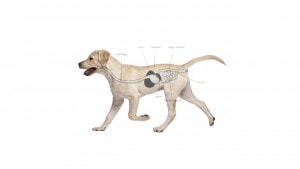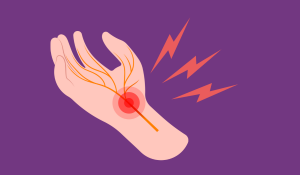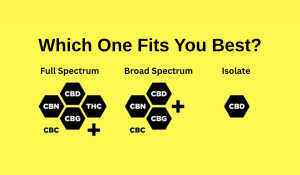Sleep apnea is a disorder characterized by breathing problems during sleep. It is often associated with snoring, poor sleep, and tiredness during the day. It can be caused by throat obstructions or nervous system problems, and correlates with drinking alcohol, being older and male, smoking, and other factors. There is no clear evidence that CBD is an effective treatment for sleep apnea.
Sleep apnea is a sleep disorder characterized by interruptions in breathing during sleep. There are several types of sleep apnea, and it can be an intrusive — and sometimes dangerous — sleep disorder.
The primary identifying symptom of sleep apnea is the abrupt stopping and starting of breathing during sleep. Individuals with sleep apnea may wake up suddenly, unable to breathe and gasping for air. Other identifying characteristics include:
In general, there are two primary types of sleep apnea: obstructive sleep apnea and central sleep apnea. Obstructive sleep apnea occurs when the throat physically constricts and prevents sufficient air from being inhaled, while central sleep apnea involves the central nervous system failing to transmit the need to breathe to breathing muscles.
A number of factors correlate with having sleep apnea, including:
Sleep apnea is treated in different ways depending on severity. In some cases, lifestyle changes — like avoiding alcohol — may be sufficient to stop sleep apnea.
In other cases, more intensive interventions may be needed, including:
There is a lack of clear evidence linking CBD use to relief from sleep apnea. It is true that there has been some evidence of the benefits of CBD for sleep disorders, but other evidence is mixed.
In general, CBD is not a primary treatment method for sleep apnea. While it may have benefits in individual cases, it is best to consult with a doctor before using CBD for sleep apnea.

Explore this cbd consumption methods tutorial and follow the step-by-step process to select, use, and verify the safest ways to consume CBD for wellness.
Read More
Learn what CBD edibles are, their main types, expected effects, legal status, safety factors, and how they compare to other forms of CBD.
Read More
Therapeutic Uses of CBD Managing Chronic Pain with CBD Struggling with chronic pain? CBD might help. Studies suggest it can reduce inflammation and alleviate discomfort,...
Read More
Just as CBD may help humans due to its interaction with the body’s endocannabinoid system, the same is true of dogs. CBD has the potential...
Read More
Cannabis has been used for millennia to treat numerous health conditions. Current research offers promising results on the effects of CBD oil on breast cancer.
Read More
What Is CBD for Cats? CBD (Cannabidiol) is a natural compound from hemp. It’s non-psychoactive, meaning your cat won’t get “high.” Instead, it works with...
Read More
1. Understanding Neuropathic Pain Neuropathic pain results from nerve damage or dysfunction, causing symptoms like burning, tingling, or sharp shooting pains. Common Causes: Symptoms Include:...
Read More
CBD for Pets: A Pet Parent’s Guide to Dosage We all want the best for our pets, especially when they’re struggling with pain, anxiety, or...
Read More
What Is Lupus? Lupus is a long-term autoimmune condition that can impact multiple organs, including the skin, heart, lungs, and kidneys. The most common type...
Read More
1. Full-Spectrum CBD: The All-In-One Option What it is: Contains CBD, minor cannabinoids, terpenes, flavonoids — and less than 0.3% THC. Why choose it: Promotes...
Read More